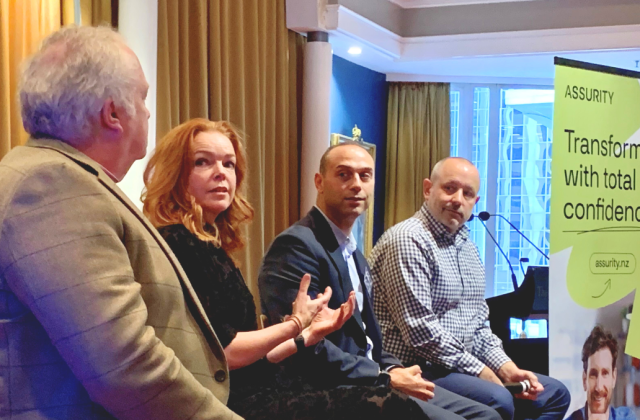Date: 08 November 2023
Great BAs aren’t born, but instead grow into the role – so long as you have the right personal characteristics, the BA career could be just for you.
As a senior Business Analyst and someone who gets involved in mentoring others, I’m going to share my thoughts on what makes a great BA. Some of the characteristics may surprise you, while others might be quite expected. Probably the biggest point, though, is that great BAs aren’t born, but instead grow into the role – so long as you have the right personal characteristics, the BA career could be just for you.
So, let’s start there, with personal characteristics. As the title indicates, a core aspect of the Business Analyst’s role involves analysis and as such, possessing a certain mindset is crucial for excelling as a BA. The ideal candidate is naturally curious and possesses an inquiring mind, demonstrating a desire to understand the workings behind things and not just what they are. A great BA is able to balance attention to detail while maintaining focus on the bigger picture in order to deliver quality results.
That’s probably expected.
What is often less expected is the collaborative and engaged nature of BA work. It is sometimes thought that the BA tends to keep to themselves, similar to Gollum in the corner, analysing away.
Nothing could be further from the truth.
Instead, the great BA engages constantly with people all through the business. With product owners, process owners, solution architects, technicians, and perhaps most importantly, with customers – you need to be a big advocate for the customer because your work is all about improving their experiences.
As an extension of that, the great BA is professional and presentable, self-disciplined, and confident.
While a lot of your deliverables might be done at a quiet desk, even more, is done face to face, on the factory floor, and in the company of peers, colleagues, executives, subject matter experts, and more.
You’ll organise and lead meetings and workshops, encounter and grasp complex problems, and provide insight and commentary on how your customers can solve those problems (though you most probably won’t directly involve yourself in the solutions).
Innate or learned?
This begs the question of whether the ‘BA mindset’ is innate or learned. The truth is a bit of both, but here’s the rub. It may be nice to say ‘you can do anything you put your mind to’, but unfortunately this just isn’t true for most of us. We have strengths and weaknesses, and professionally, playing to strengths pays (you can learn guitar all you like in your personal time and enjoy it, even in the absence of any aptitude!)
That’s a nice way of saying that to some extent, you need to have that mindset, and it should have already emerged by the time you’re looking at an analyst role.
In my experience, those who work from the ‘top-down’ – strategic and lateral thinkers, in other words –deal well with ambiguity.
Ambiguity often results because parts of a business look at a common problem differently. As a BA, understanding those perspectives and providing options and a recommended best course is your challenge.
Along with ambiguity, there’s something else the great BA is aware of…but in this case, actively avoids and dispels. That’s assumptions; assumptions are dangerous and when combined with ambiguity, can result in quite the wrong outcomes.
While top-down works well for strategy, bottom-up analysis can uncover groupings, patterns, themes, and sometimes some of the “watch-outs” that can trip up a project. I have found working top-down at the commencement of a project and then moving to more of a bottom-up approach provides a more complete engagement. You need to learn to adapt your working style to the different development lifecycle phases and evolving client and customer needs.
As you’ll appreciate, this is a combination of seeing the big picture….and while detail matters, don’t get drawn in too deep, too early. Join the dots without filling in all the gaps!
‘Tech experience’?
The big question is often ‘do I need technical experience’. There are ‘BA-specific’ tools you’ll use, but those are easily learned. You don’t need a formal technology background; the core of what we do is translate the needs of customers and stakeholders into content (often requirements, user stories, processes, and business cases) that will drive the outcome of a project and realise value.
Depending on the industry you’re analysing, specialist knowledge is advantageous – such as in financial services, telecommunications, health, and so on. Learning frameworks, regulatory needs, standards, and operating models specific to these industries is useful, with much of the information applicable in other fields, even if the terminology is slightly different.
Test with others
I’ve already mentioned how a great BA is collaborative and a capable networker. Coming from an adult training background, one of the most important lessons is that on any topic, the group knows more than you. Be comfortable with that; your task is drawing the information out, then socialising the ideas, applying, and sharing. In many instances you’re facilitating the outcome, so test ideas with others.
Finally, someone asked me how it feels when it all comes together. The best thing is when someone sells the very idea you facilitated, straight back as the solution. That’s the best compliment, and it’s highly satisfying. As is the career of a BA: you have a major and lasting impact that becomes part of the DNA of the organisation you work for.













